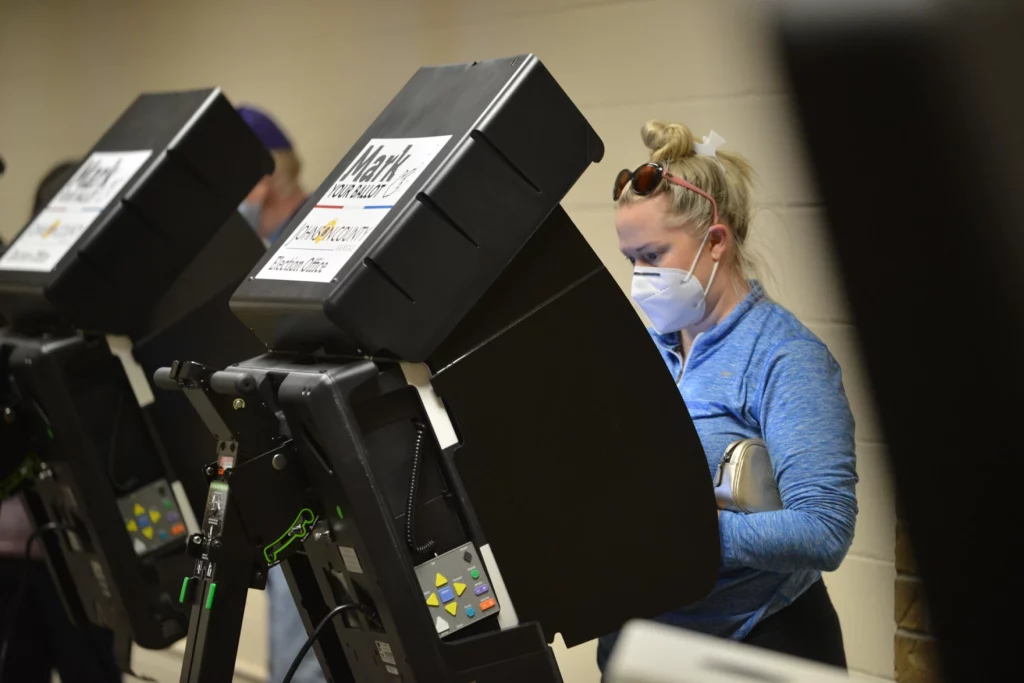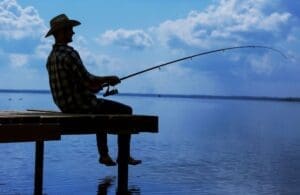Overland Park, KS — Republican Ed Roitz lives in central Overland Park, right in the middle of that state’s most populous, suburban county.
He ran to represent his affluent Johnson County neighbors in the Kansas House this fall, focusing on the tried-and-true conservative policy of cutting taxes.
But when he met voters on their doorsteps, he came face-to-face with a changing electorate. One voter, for instance, told him she likes paying taxes.
“She was convinced,” Roitz said, “that the only reason that we have it ‘so good here in Johnson County and Overland Park’ is because the taxes are so high.”
Meanwhile in the western Kansas town of Hays, Democrat Edward Hammond found himself similarly out of step with his neighbors. His campaign in the rural part of the state focused on expanding Medicaid and increasing funding for special education.
“I went to 7,000-plus doors,” Hammond said. “What I found is they don’t have the foggiest idea of what’s going on in Topeka.”
Both the Roitz and Hammond campaigns ran into a starkly divided Kansas. While urban and suburban areas turn to Democrats, the state’s rural areas remain as Republican as ever.
Democrats made gains in Johnson County this fall, giving the party a majority of the county’s seats in the Kansas House. But Democrats were unable to put much of a dent into the Republican Party’s vice grip on legislative control because they made no gains in rural parts of the state.
So even as Johnson County sends a voting bloc of Democrats to Topeka, it falls in a legislative minority likely to lose more than it wins against conservatives from the state’s small towns and countryside.
Overall, the make up of the Legislature will effectively remain the same. Republicans will continue to dictate policymaking, with Democrats unable to stop them. Instead, their hopes will often rely on the veto power of Democratic Gov. Laura Kelly, who won a second term while also outpacing much of the rest of her party at the ballot box.
But Kelly won’t be a Democratic fail-safe, because Republicans still hold supermajorities in both the House and the Senate. That gives the GOP lawmakers the ability to override Kelly’s veto and send state constitutional amendments to voters — like the recently rejected rules and regulations amendment that would have curtailed the governor’s political power.
The Republican dominance also means some popular policy changes — including expanding Medicaid — will likely be pushed to the wayside. Republicans will instead focus on more conservative issues.
Divided Kansas
Democrats flipped three House seats in Johnson County this fall. Of the 27 House seats representing the state’s most populated county, Democrats now sit in 16 of them. That’s more than a third of the 40 Democrats in the Kansas House.
State Rep. Stephanie Clayton of Overland Park is a one-politician microcosm of changing Johnson County. She was elected as a Republican in 2012. But she switched to the Democratic Party in 2018. Democrats have won more seats in the county since.

After the election, Clayton celebrated the county’s voters turning to moderates.
“We’re mostly calm, middle-of-the-road, pro-education people who just want to make sure women have a right to choose and that our kids don’t get shot at school,” Clayton said.
But outside of Johnson County, the political makeup looks very different. Democrats lost two seats in Wyandotte and Sedgwick counties, for a gain of just one seat overall. The party fell short of breaking the Republican Party’s two-thirds majority in the House.
Democrats are left with a significant uphill battle against Republicans, who almost exclusively control the vast rural areas of the state. Outside of the five most populated counties, Democrats only hold two seats. The remaining 47 seats are controlled by Republicans.
Nathaniel Birkhead, a political scientist at Kansas State University, said rural voters may help Republicans keep that advantage for the foreseeable future.
“If they’re not going more red,” Birkhead said of rural voters, “then they’re certainly staying very red.”

The result is rural Republican lawmakers having a stronger voice than the urban area Democrats. For example, House Republicans created a committee just for rural issues, but did not create an urban counterpart. Johnson County’s Democratic lawmakers will also have a harder time securing state dollars during budget negotiations that Republicans lead.
Roitz said he wonders if his district may now lose out.
“The effectiveness of being a minority legislator,” he said, “is very questionable.”
Moderation is key
To have more of a say, Democrats will have to make a dent in rural areas. The party has done well turning the tide for statewide races, like reelecting Kelly this fall.
Birkhead said Democrats may do better in statewide races because they appear more often in the news, while local races get little media coverage. That leads to voters sticking with their preferred party further down the ballot.
“That’s where the partisanship really just rules the day,” Birkhead said.

But Kelly is also somewhat of a special case. She’s made more inroads in rural areas than the other statewide Democratic candidates. For example, in Saline County, Kelly got 45% of the vote. Almost all of the other Democrats running for statewide office received 30% or less of the county’s vote.
Kelly may have successfully separated herself from the state’s overall view of Democrats and given voters the idea she is a business-friendly political moderate. That image was boosted by the state’s all-time low unemployment rate and the fact that she just landed a $4 billion manufacturing plant.
Emma O’Brien, a spokesperson for the Kansas Democratic Party, said the party’s candidates can win rural elections by modeling Kelly.
“You know, leave no stone unturned, talk to every single voter, and continue to grow and expand on that,” O’Brien said.
Conservative Legislature
In the meantime, Kelly and Democrat lawmakers will continue to face a Republican-dominated Legislature mostly unafraid of political opposition to their plans.
It will be very similar to the last two years. During that time, the Legislature pushed several amendments to the state constitution — including the overwhelmingly rejected change that would have removed the right to abortion — focused on socially conservative changes in schools and ignored calls for expanding Medicaid.
Michael Smith, a political scientist at Emporia State University, said the new make up of the Legislature means Republicans will likely continue on that path.
“In terms of the big picture,” Smith said, “it’s not that different.”
While major policy changes are unlikely, Republicans could still push conservative changes. They may again try to pass the ban on transgender girls playing in girls sports — a bill that Kelly vetoed twice.
They may also test just how strong the right to abortion is protected by the Kansas Constitution. The rejection of the state constitutional amendment rules out a total ban that neighboring states have enacted. But lawmakers could try to pass a moderately more restrictive ban — like dropping the current 22-week ban to 15 weeks — to see if the Kansas Supreme Court would allow it.
Additionally, lawmakers could again try to change how the court’s justices are selected. That proposed constitutional amendment was considered last spring, but did not get the two-third majority required to send it to voters.
But given how voters have mostly rejected the changes to the state constitution this year, Smith said it may be a bad idea for Republicans to continue trying for amendments that could be seen as a power grab.
“Kansans just don’t love it when one of the branches goes messing with the separation of powers,” Smith said.
Dylan Lysen reports on politics for the Kansas News Service. You can follow him on Twitter @DylanLysen or email him at dlysen (at) kcur (dot) org.
The Kansas News Service is a collaboration of KCUR, Kansas Public Radio, KMUW and High Plains Public Radio focused on health, the social determinants of health and their connection to public policy.
Kansas News Service stories and photos may be republished by news media at no cost with proper attribution and a link to ksnewsservice.org.













